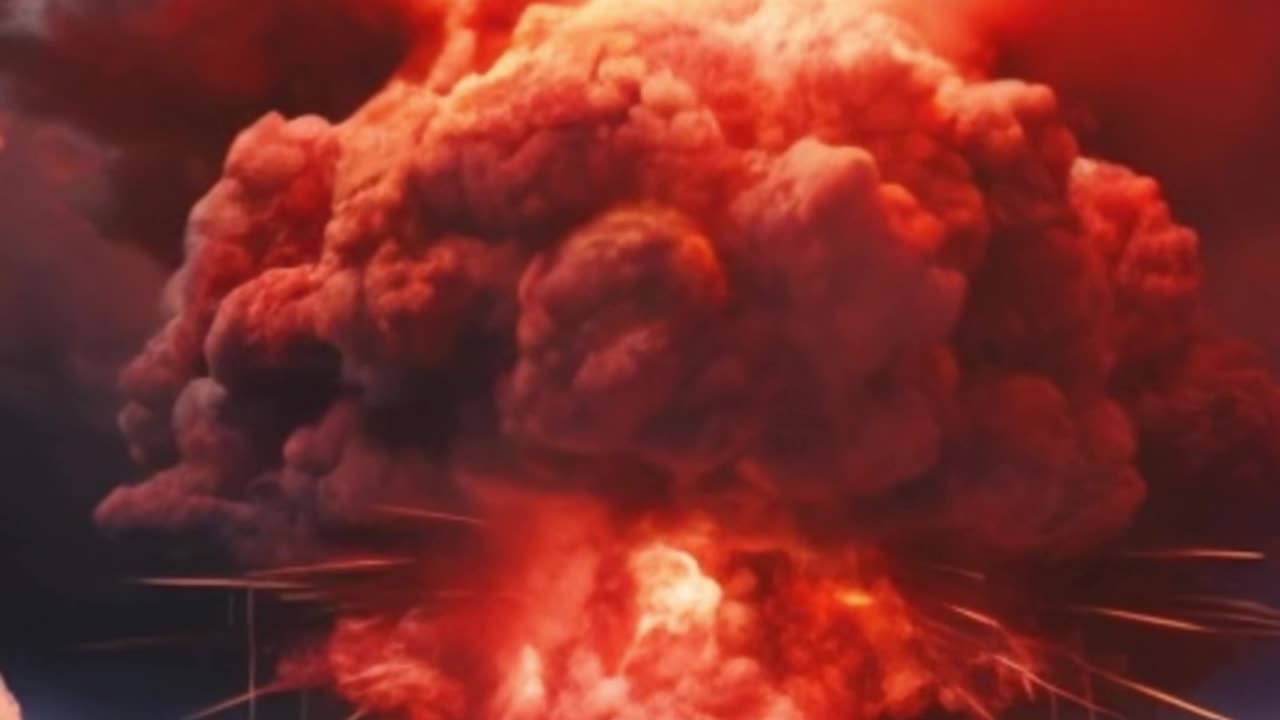Premium Only Content

When the Air Force Makes Mistakes While Transporting Nukes
The United States Air Force has a long history of being responsible for the transportation of nuclear weapons, a responsibility that carries with it a tremendous burden and risk. In fact, the Air Force has had numerous incidents in the past where accidents occurred during the transport of these powerful weapons, with potentially devastating consequences.
One of the most notable incidents involving the transport of a nuclear weapon occurred on March 10, 1956, when a B-47 bomber crashed near the Mediterranean island of Palomares, Spain. The plane was carrying two nuclear bombs as part of a training exercise, and during the flight, a mid-air collision with a tanker aircraft caused one of the bombs to fall into the sea. The bomb was later recovered intact, but the conventional explosives in its payload had detonated upon impact, spreading radioactive material over a wide area and causing widespread concern among local residents.
This incident was particularly alarming because it happened during the height of the Cold War, when tensions between the United States and the Soviet Union were at an all-time high. The thought of a nuclear weapon falling into the hands of the enemy was a nightmare scenario that many feared could trigger a global disaster. Fortunately, the nuclear core of the bomb had been removed before the flight, preventing a full-scale nuclear detonation.
But this was not the only time that the United States Air Force had a close call when transporting a nuclear weapon. On January 21, 1968, a B-52 bomber carrying four nuclear bombs crashed near Thule Air Base in Greenland. The plane had experienced a fire in its wing and was attempting an emergency landing when it crashed. In the process, one of the bombs fell from the plane and detonated upon impact, creating a large crater in the ice and releasing radioactive material into the environment.
This incident caused an international uproar, with the Danish government, who owned Greenland, demanding answers from the United States and questioning the safety of transporting nuclear weapons over their territory. The fallout from this incident also led to a complete overhaul of the safety protocols for transporting nuclear weapons.
These two accidents serve as a sobering reminder of the potential dangers and consequences of transporting nuclear weapons, and the tremendous responsibility that falls on the shoulders of the United States Air Force. Even with all the precautions and safety measures in place, accidents can still happen, and the consequences can be catastrophic.
In response to these incidents, the Air Force implemented stricter safety protocols, including increased training for personnel, enhanced communication and coordination among agencies, and improved transportation containers for nuclear weapons. Since then, there have been no major incidents involving the transportation of nuclear weapons by the United States Air Force.
But the fact remains that the risk is always present. The transportation of nuclear weapons is a delicate process that requires precise planning and flawless execution. Any mistake, no matter how small, can have devastating consequences. The Air Force continues to place a high priority on the safety and security of these powerful weapons, ensuring that they are transported with the utmost care and caution.
In conclusion, the United States Air Force has had two major accidents while transporting nuclear weapons, one in Spain in 1956 and another in Greenland in 1968. These incidents serve as a reminder of the potential dangers and consequences of transporting these powerful weapons. However, they have also led to significant improvements in the safety protocols and procedures for transporting nuclear weapons, ensuring that the risk of an accident is minimized as much as possible. The responsibility of transporting nuclear weapons will always be a challenging and crucial task for the Air Force, but it is one that they take very seriously.
-
 2:00:10
2:00:10
Bare Knuckle Fighting Championship
3 days agoCountdown to BKFC on DAZN HOLLYWOOD & FREE LIVE FIGHTS!
39.5K3 -
 2:53:01
2:53:01
Jewels Jones Live ®
1 day agoA MAGA-NIFICENT YEAR | A Political Rendezvous - Ep. 103
86.7K22 -
 29:54
29:54
Michael Franzese
10 hours agoCan Trump accomplish everything he promised? Piers Morgan Article Breakdown
96.8K49 -
 2:08:19
2:08:19
Tactical Advisor
14 hours agoThe Vault Room Podcast 006 | Farwell 2024 New Plans for 2025
173K11 -
 34:12
34:12
inspirePlay
1 day ago $5.09 earned🏆 The Grid Championship 2024 – Cass Meyer vs. Kelly Rudney | Epic Battle for Long Drive Glory!
71K8 -
 17:50
17:50
BlackDiamondGunsandGear
12 hours ago $1.91 earnedTeach Me How to Build an AR-15
50.7K6 -
 9:11
9:11
Space Ice
1 day agoFatman - Greatest Santa Claus Fighting Hitmen Movie Of Mel Gibson's Career - Best Movie Ever
110K45 -
 42:38
42:38
Brewzle
1 day agoI Spent Too Much Money Bourbon Hunting In Kentucky
74K12 -
 1:15:30
1:15:30
World Nomac
20 hours agoMY FIRST DAY BACK in Manila Philippines 🇵🇭
57K9 -
 13:19
13:19
Dr David Jockers
1 day ago $10.86 earned5 Dangerous Food Ingredients That Drive Inflammation
76.5K17